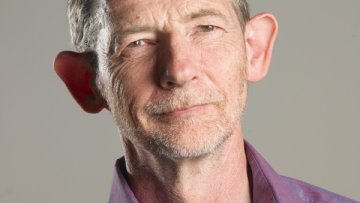The BSHM meeting on “The history of computing beyond the computer” looks at the people and the science underpinning modern software and programming, from Charles Babbage’s design notation to forgotten female pioneers.
Registration will be £32.50 for standard tickets, £22.00 for BSHM members and Oxford University staff, and £6.50 for students. This will include tea/coffee and biscuits at break times, but not lunch, as we wanted to keep the registration fee to a minimum. A sandwich lunch or a vegetarian sandwich lunch can be ordered separately on the Eventbrite page. If you have other dietary requirements, please use the contact button at the bottom of this page. There is also a café in the Mathematical Institute that sells hot food at lunchtime, alongside sandwiches and snacks, and there are numerous places to eat within easy walking distance.
https://www.eventbrite.co.uk/e/the-history-of-computing-beyond-the-comp…
Programme
21 March 2018
17:00 Andrew Hodges, University of Oxford, author of "Alan Turing: The Enigma” on 'Alan Turing: soft machine in a hard world.’
http://www.turing.org.uk/index.html
22 March 2018
9:00 Registration
9:30 Adrian Johnstone, Royal Holloway University of London, on Charles Babbage's design notation
http://blog.plan28.org/2014/11/babbages-language-of-thought.html
10:15 Reinhard Siegmund-Schultze, Universitetet i Agder, on early numerical methods in the analysis of the Northern Lights
https://www.uia.no/kk/profil/reinhars
11:00 Tea/Coffee
11:30 Julianne Nyhan, University College London, on Father Busa and humanities data
https://archelogos.hypotheses.org/135
12:15 Cliff Jones, University of Newcastle, on the history of programming language semantics
http://homepages.cs.ncl.ac.uk/cliff.jones/
13:00 Lunch
14:00 Mark Priestley, author of "ENIAC in Action, Making and Remaking the Modern Computer"
http://www.markpriestley.net
14:45 Marie Hicks, University of Wisconsin-Madison, author of "Programmed Inequality: How Britain Discarded Women Technologists and Lost Its Edge In Computing"
http://mariehicks.net
15:30 Tea/Coffee
16:00 Panel discussion to include Martin Campbell-Kelly (Warwick), Andrew Herbert (TNMOC), and Ursula Martin (Oxford)
17:00 End of conference
Co-located event
23 March, in Mathematical Institute, University of Oxford, Symposium for the History and Philosophy of Programming, HaPoP 2018, Call for extended abstracts
http://www.hapoc.org/node/241



